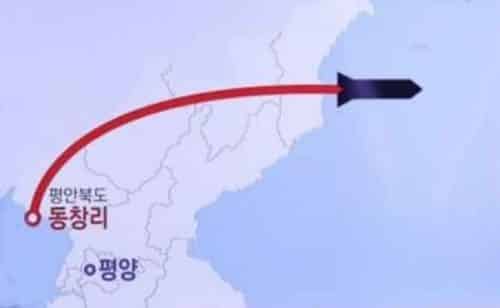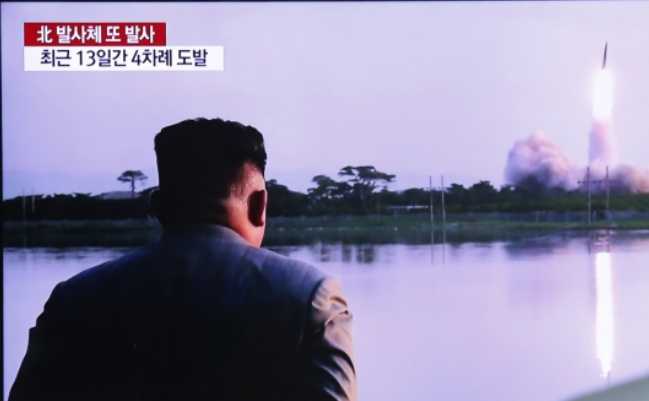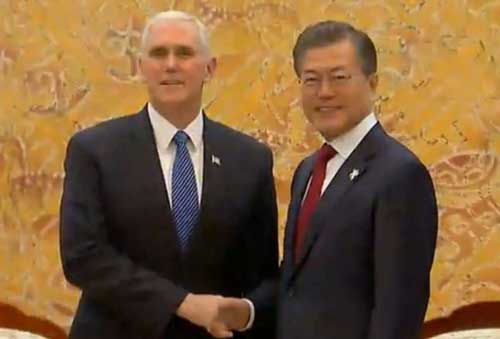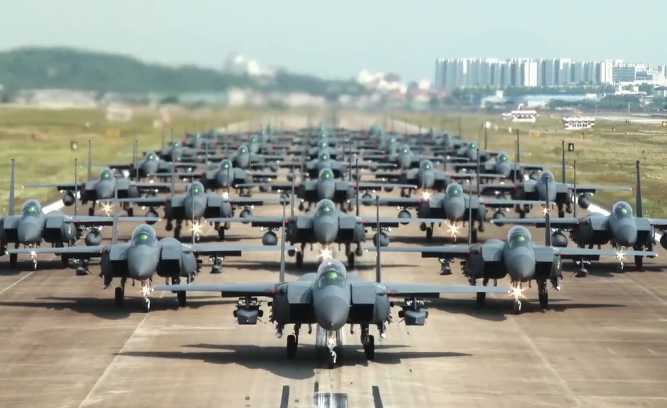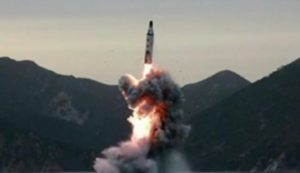
The United Nations Security Council remains divided over how to respond to North Korea’s increasingly provocative missile tests, while Japan and South Korea continue to face opposition at home and abroad for pursuing more aggressive military policies.
The 15-member Security Council on Wednesday met at the request of Japan and the United States after North Korea launched two missiles earlier that day that landed in or very near Japanese-controlled waters.
Japan’s U.N. Ambassador Koro Bessho told reporters, “It is certainly a major, major problem for the security and safety of our region.”
Stephane Dujarric, the Spokesperson for Secretary-General Ban Ki-moon called the incursion inside Japanese waters “deeply troubling.”
“I think the Secretary-General would reiterate and renew his call to the DPRK to halt any such activities which are clearly not conducive to reducing tensions on the Korean Peninsula,” he said[xyz-ihs snippet=”adsense-body-ad”]
In March the United Nations imposed harsh new international sanctions on Pyongyang for conducting its fourth nuclear test and another long-range rocket launch in violation of Security Council resolutions banning North Korea from developing nuclear and ballistic missile weapons.
South Korean U.N. Ambassador Oh Joon noted North Korea has responded to the sanctions by conducting 13 rounds of ballistic missile tests this year, and firing 29 various rockets.
However Wednesday’s Security Council meeting produced no consensus for taking any further punitive measures against North Korea.
The U.S. Ambassador to the U.N., Samantha Power, expressed confidence that the Security Council would issue a swift condemnation of North Korea.
But China’s U.N. Ambassador, Liu Jieyi, said nothing should be done to exacerbate tensions on the Korean Peninsula.
THAAD
U.S. Ambassador Powers said any suggestion that the North Korean missile tests were provoked by South Korea’s decision to deploy an American advanced missile defense system “is not grounded in reality and it’s not grounded in history.”
Powers said North Korea alone was responsible for the repeated ballistic missile launches that violate U.N. resolutions.
China has criticized the deployment of a Terminal High Altitude Area Defense (THAAD) system on the Korean peninsula, saying it will worsen the security situation.
There is growing concern that Beijing’s opposition to THAAD could lead to increasing support for North Korea and decreasing economic ties with South Korea.
A number of opposition party lawmakers in Seoul have also voiced opposition to THAAD this week, saying the risk of alienating China outweighs the benefit of the missile defense system.
Japanese defense minister
Hours after the North Korean missile launch, Prime Minister Shinzo Abe named a new controversial defense minister in a move that could further aggravate tensions in the region.
Chinese and South Korean media outlets have characterized Tomomi Inada, the newly appointed Japanese Defense Minister, as a right wing politician who has denied Japan’s past wartime atrocities, including the sexual enslavement of thousands of women in Asia to work as prostitutes in military brothels.
Inada has regularly visited the Yasukuni Shrine, which honors Japan’s war dead, including convicted war criminals.
Countries like China and South Korea that suffered under Japanese colonial rule have criticized Tokyo leaders who visit the shrine for endorsing the nation’s militaristic past.
In 2011 Inada was one of three Japanese lawmakers who were reportedly denied entry into South Korea, because they planned to visit islands, known as Dokdo in Korea and Takeshima in Japan, that are claimed by both countries.
The defense minister supports Abe’s plan to revise the country’s pacifist constitution and to increase the power and scope of the military.
She said North Korea’s missile launch on Wednesday reflects a worsening security environment.
But her appointment could undermine Japan’s military alliance with South Korea and jeopardize relations with China, which improved after Abe publicly apologized last year for World War II atrocities committed by Japan.
“If the new defense minister makes comments which trigger conflict with South Korea, it will complicate cooperation efforts,” said Japan analyst Hosaka Yuji with Sejong University in Seoul.
Source: VOA News
[xyz-ihs snippet=”Adversal-468×60″]

